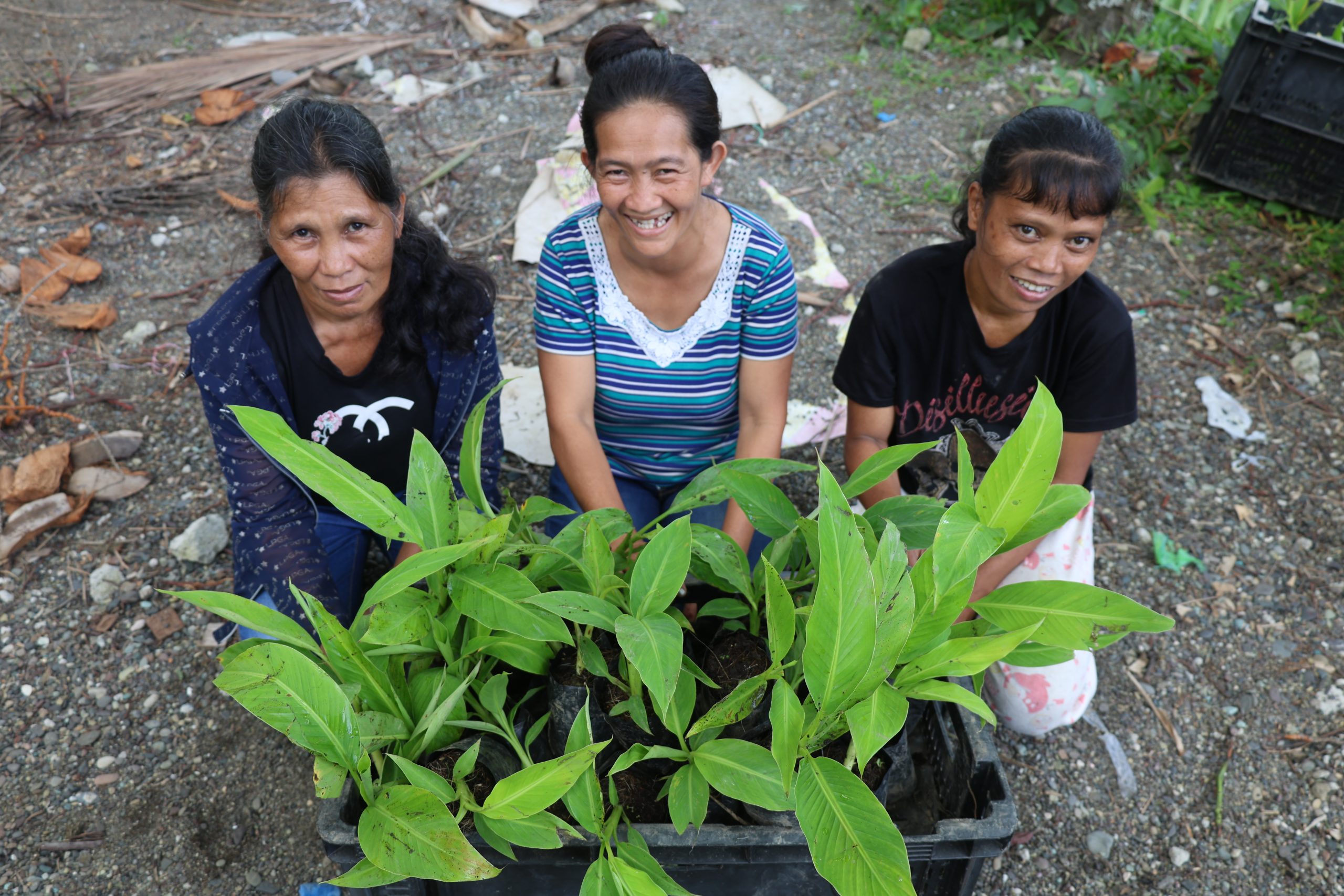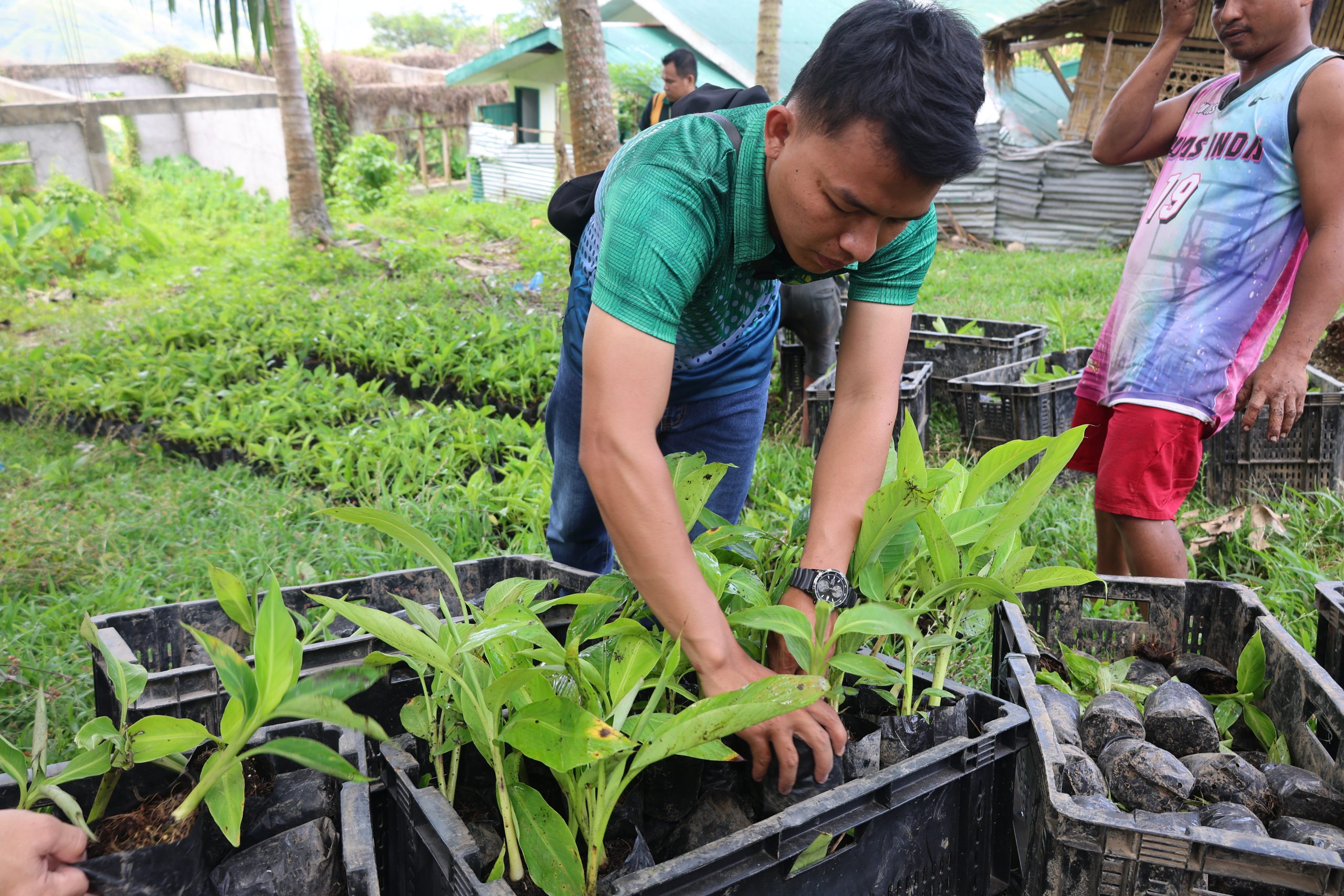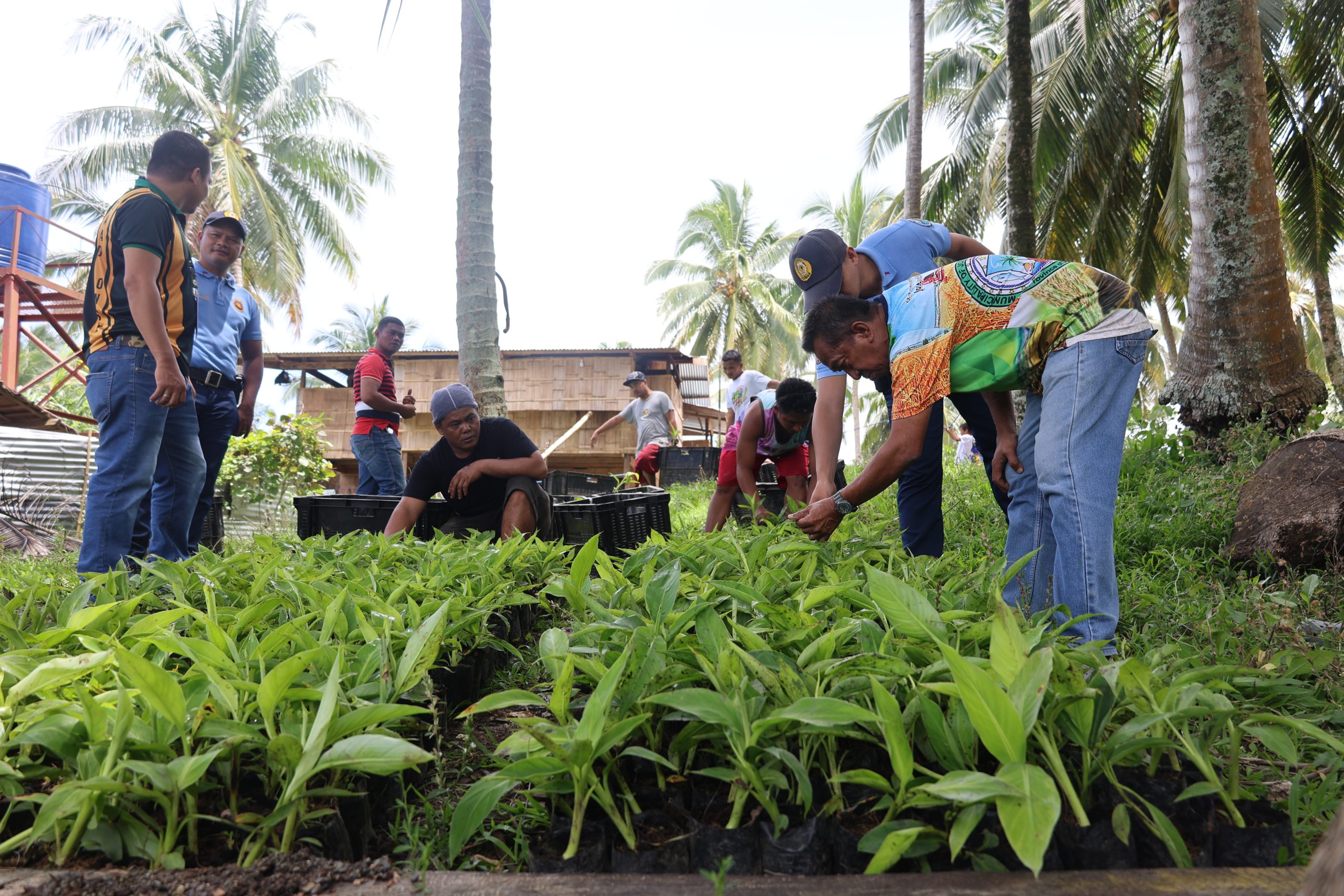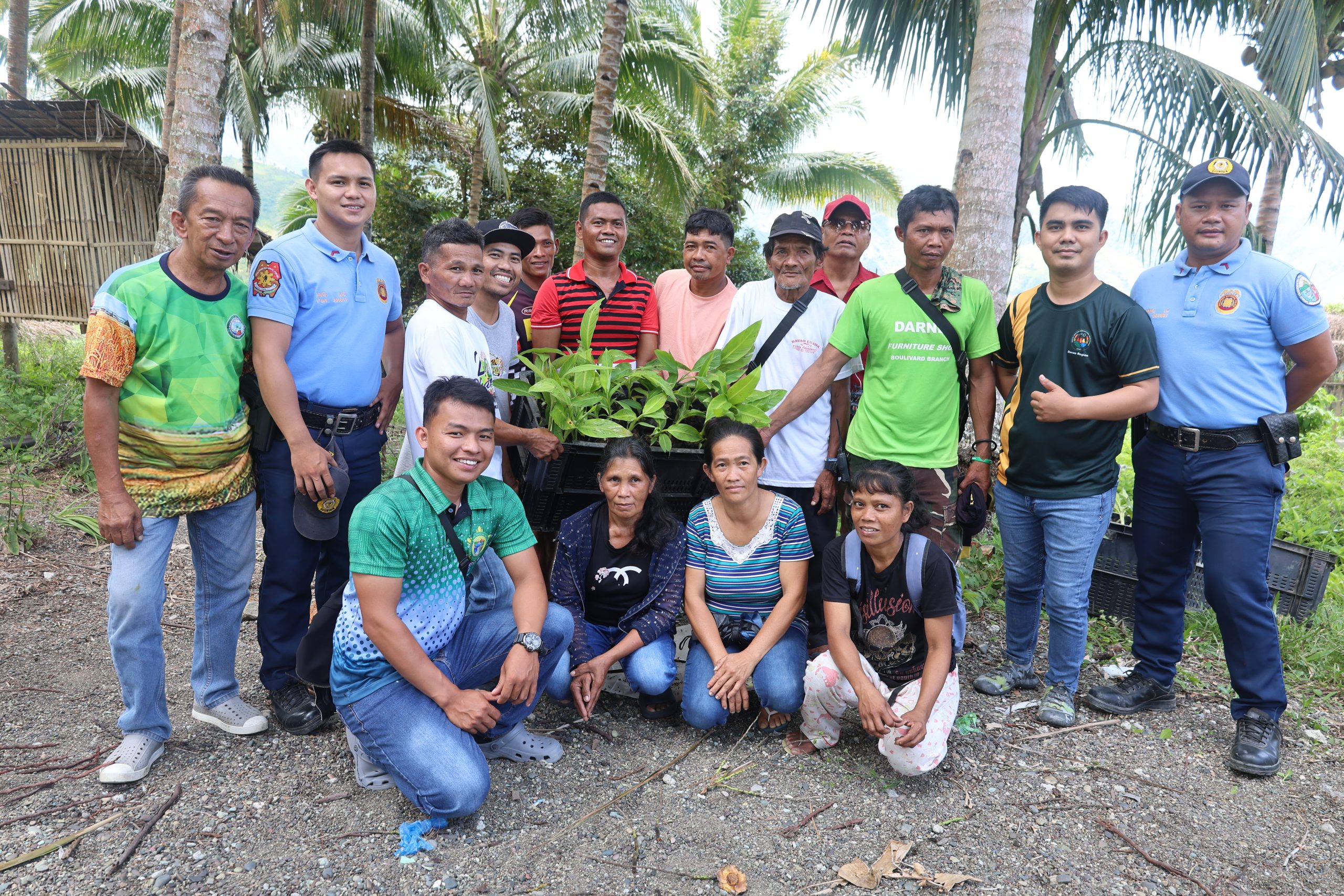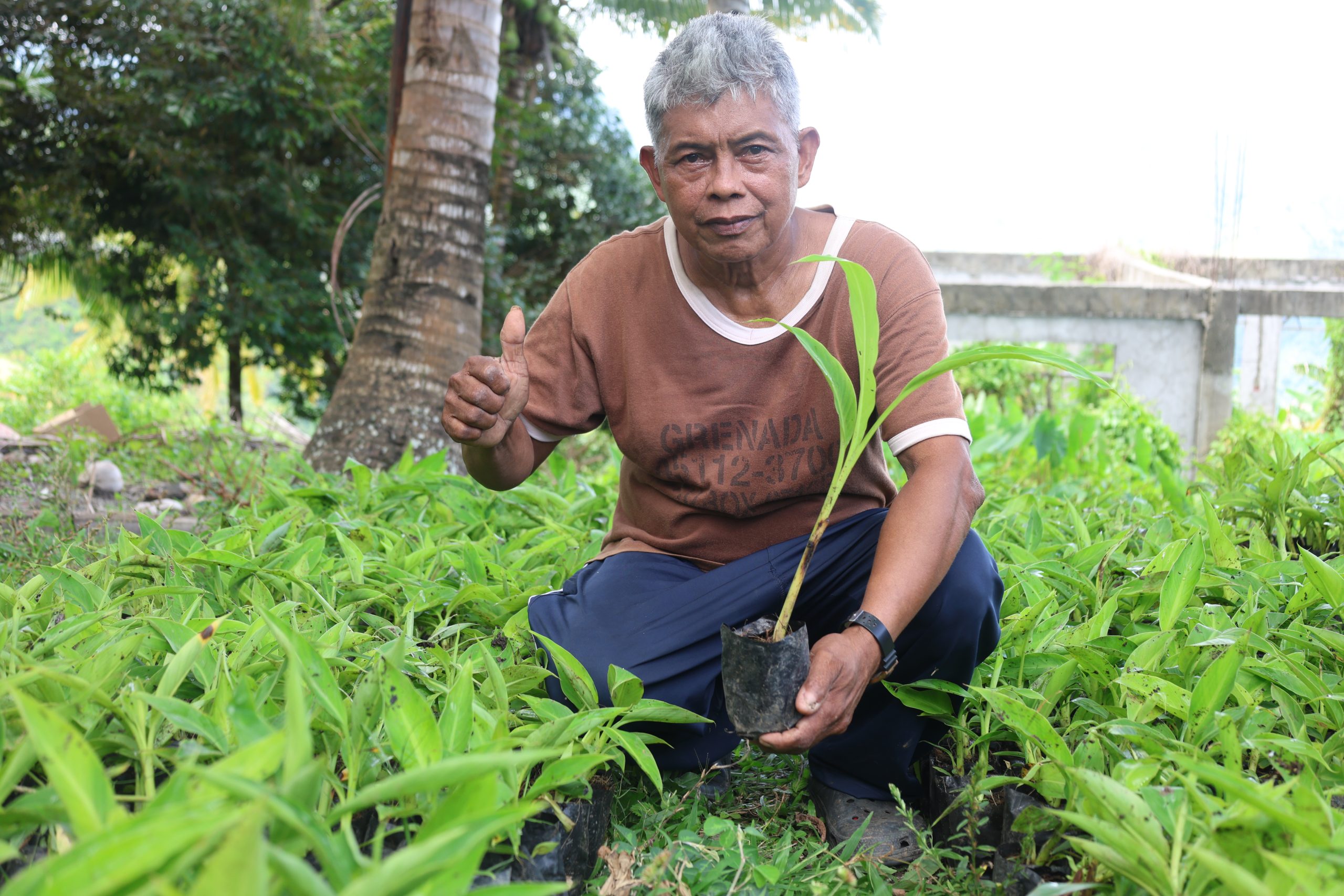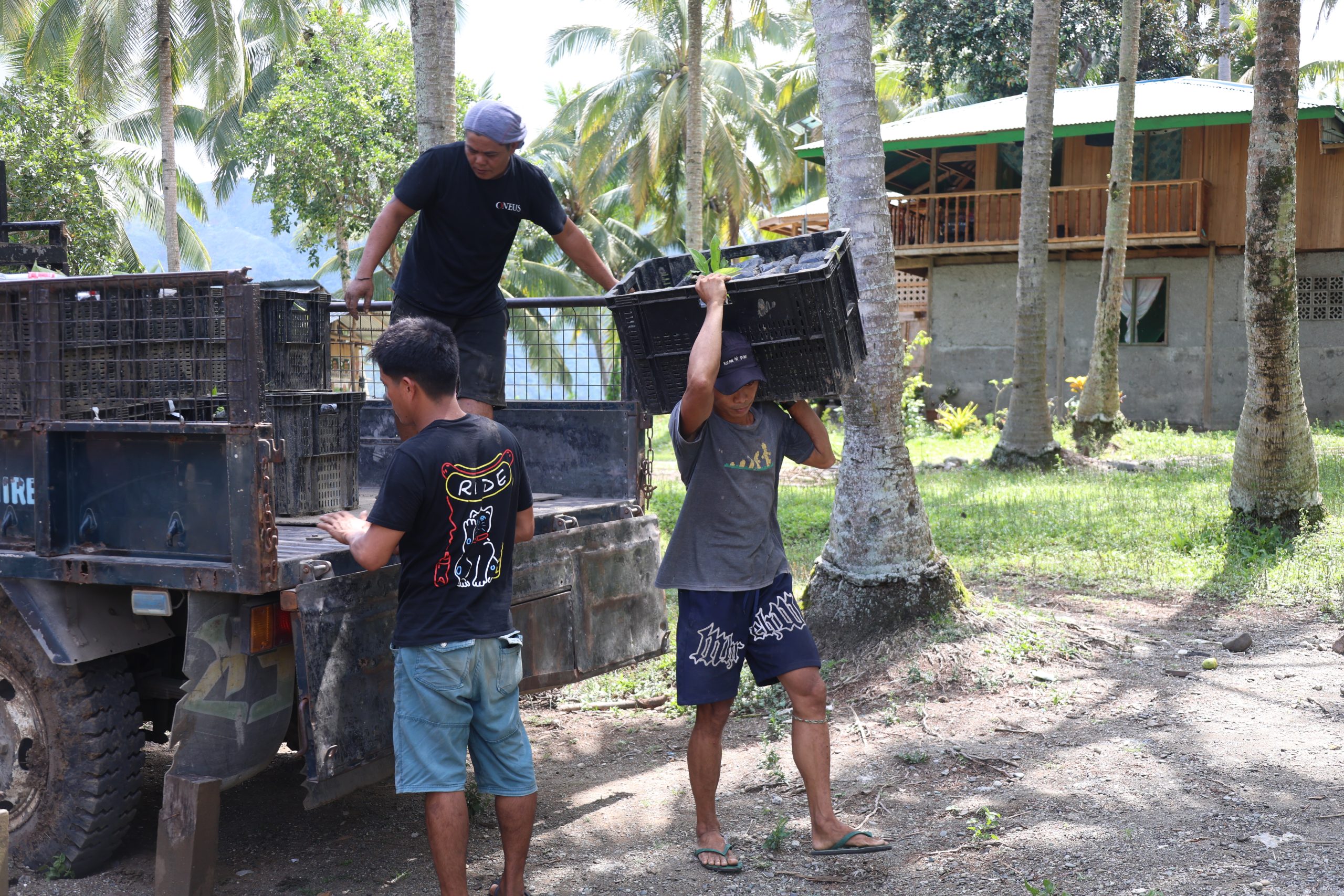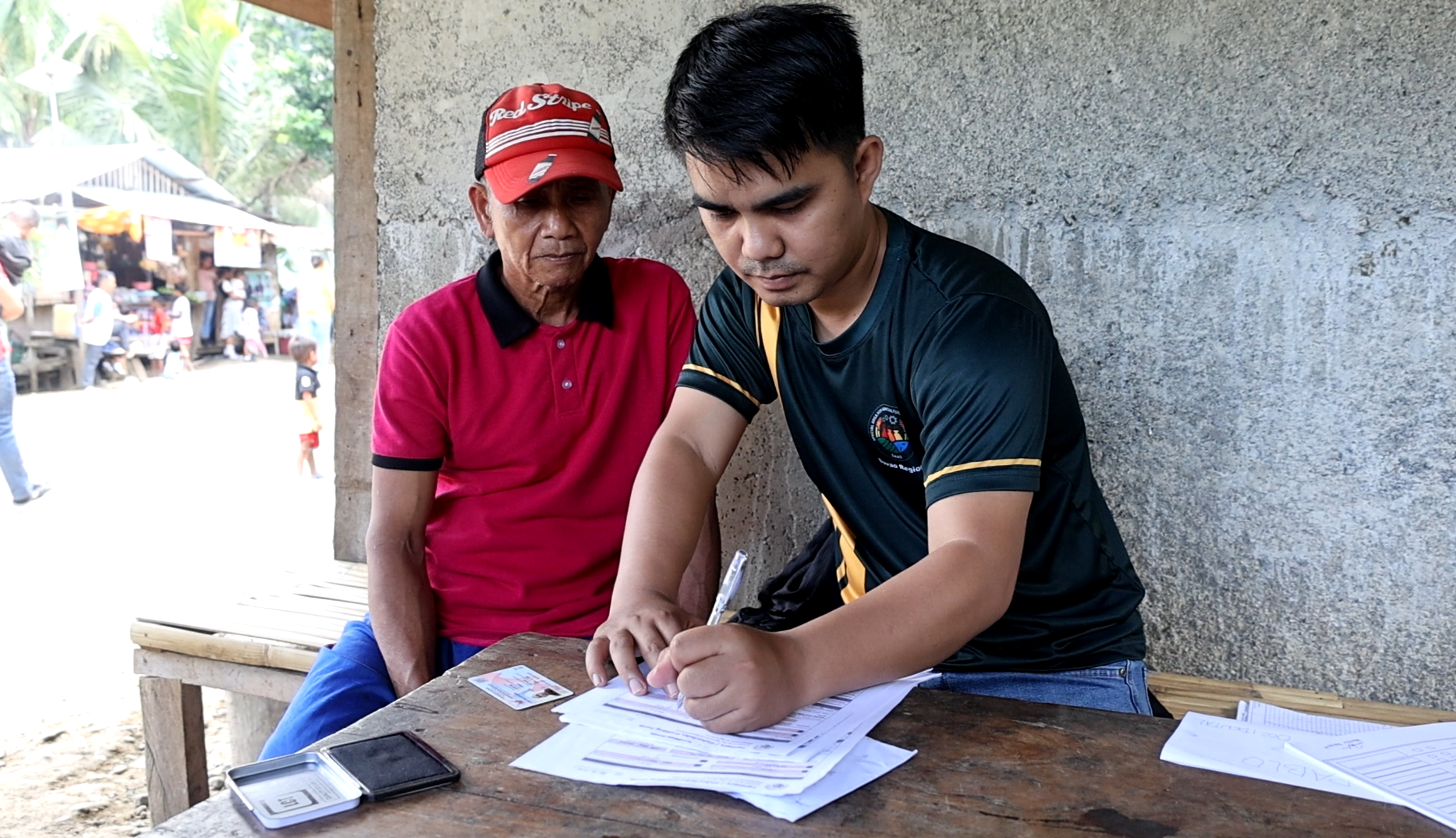To provide a boost to rural livelihoods of its beneficiaries, the Department of Agriculture – Special Area for Agricultural Development (DA-SAAD) Program turned over 7,000 abaca plantlets to farmers of Pigbaluyan Highland Farmers Association in Caburan Small, Jose Abad Santos (JAS) in Davao Occidental.
Held last April 7, 2025, the initiative is set against a backdrop of economic challenges in the region. This is based on the recently released data indicating that Davaoeño families face a projected poverty rate of 14.0 percent, with about 140 out of every 1,000 families lacking sufficient income to cover basic food and non-food needs.
In his message, Municipal Agriculturist of Jose Abad Santos Ronville Muego underscored that the agriculture sector plays a critical role in ensuring food security and supporting communities especially to those vulnerable to the current economic crisis.
“Ang abaca, nailhan kini tungod sa lig-on nga fiber, importante kining tanom sa komunidad diri sa JAS, apan kaniadto, ang pag-akses sa mga de-kalidad nga materyales sa pagtanum niini usa ka dakong hagit,” said Muego.
(Abaca, known for its strong and durable fiber, is an important crop for our communities here in JAS. But before, access to quality planting materials was a major constraint.)
The distribution of quality abaca plantlets is intended to support traditional farming communities while also opening avenues for improved income generation and market diversification. This project not only provides new planting materials but also equips our farmers with the tools to build a more resilient future,” added Muego.
For the Pigbaluyan Highland Farmers Association Chairman Martino Matanod, receiving the plantlets means a real opportunity to improve their yields and families to overcome economic hardships.
“Ang abaca parte ni sa atong kabilinan. Uban niini nga inisyatibo, mahimo natong mapreserbar ang atong mga tradisyon samtang mopahiangay sa modernong mga pamaagi sa agrikultura,” said Matanod.
(Abaca is part of our heritage. With this initiative, we can preserve our traditions while adapting to modern agricultural practices.)
The Livelihood Production Project aims to modernize local cultivation methods by providing technical support and access to improved crop varieties. By addressing both the economic and production challenges faced by rural communities, the project is viewed as a significant step in reducing poverty among local farmers and strengthening the agricultural sector.
Following this, SAAD Davao targets P2.4 million worth of 49,000 abaca plantlets to be distributed to five more municipalities in Davao Region which includes Talaingod in Davao del Norte; Caraga, Baganga, Cateel, and Boston in Davao Oriental
Further, DA-XI Regional Executive Director and SAAD Regional Focal Macario Gonzaga emphasized that the government remains committed to initiatives that support food security and rural development. The recent turnover of abaca plantlets is expected to serve as a catalyst for further programs designed to uplift impoverished farming communities and promote sustainable agricultural practices.
“With the implementation of projects like this, the government hopes to transform the challenges faced by local farmers into opportunities for increased productivity and economic stability, ensuring that the backbone of the nation remains strong amidst evolving public health and economic concerns,” said Gonzaga. ###
